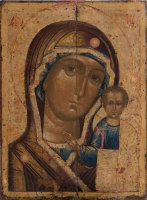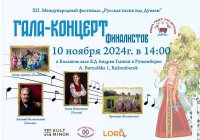 Dear friends, lovers of the Russian language and culture! Dear teachers, students, and pupils!
Dear friends, lovers of the Russian language and culture! Dear teachers, students, and pupils!
We are delighted to invite you to Folk Day, which will take place on November 15 at the AIRCRAFT Gallery as part of the educational project "Russian Language Week in Slovakia." Traditional songs performed by the Belarusian family ensemble "Prasnisa" (meaning "spindle" in Russian), dancing, and a fascinating Russian circle dance with Maria Vladimirova will lift your spirits! At our gathering, we will sum up the results of Russian Language Week, present awards to the winners of the Russian language quest, and distribute participant diplomas. We look forward to seeing you again!
 From November 7 to 10, the annual International Book Fair BIBLIOTEKA PEDAGOGIKA is held at the INCHEBA exhibition center in Bratislava. After a two-year hiatus, Russian books have returned to the exhibition! Classics, contemporary literature, children's books, and textbooks in Russian are available. Russian authors Dmitry Bak, Alexander Livergant, and Vadim Polonsky are actively lecturing, presenting at the fair’s venues, as well as speaking to students of bilingual high schools in Bratislava.
From November 7 to 10, the annual International Book Fair BIBLIOTEKA PEDAGOGIKA is held at the INCHEBA exhibition center in Bratislava. After a two-year hiatus, Russian books have returned to the exhibition! Classics, contemporary literature, children's books, and textbooks in Russian are available. Russian authors Dmitry Bak, Alexander Livergant, and Vadim Polonsky are actively lecturing, presenting at the fair’s venues, as well as speaking to students of bilingual high schools in Bratislava.







